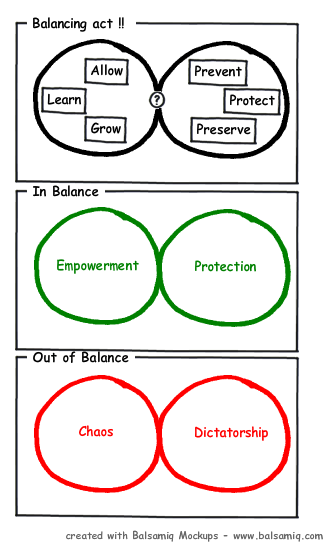A few weeks ago a friend told me that the only thing he can do as a parent is to stand behind his kids – both hands open – saying: “I will catch you if you fall”. Here’s another great lesson one can only learn by being home early enough.
He continued:
“For example: a three year old carrying a big bottle from the kitchen to the dinner table is a breathtaking sight for most parents. We are tempted to say ‘careful’, ‘don’t let it fall’, ‘hold it with both hands’, etc. Now, if the bottle arrives at the dinner table unharmed, is that THANKS TO our verbal support or is it NOTWITHSTANDING our comment?”.
How would our children grow and learn if we would be more at ease with the circumstances they are in? Whenever we comment / advise / suggest our children with all of our hearts, our support and the lessons learned from our own from bruises and breakdowns; aren’t we just pushing them into learned helplessness?
In my opinion, this is the very point where the skill of education stops and the art of parenting starts. Like a balancing act, both empowerment and protection are necessary for a healthy development.

As the above drawing indicates, the development of children (and grown-ups) needs a perfect mix of nudging and nurturing; a balance between empowerment and protection. It is exactly at that same point where the skill of management stops and the art of leadership starts.
To your opinion, where is the best place to learn that art? At Harvard or at home?
Related articles:
Parenting as a Management Skill … Huh? (part 6) – September 21st, 2009
Parenting as a Management Skill … Huh? (part 5) – May 24th, 2009
Parenting as a Management Skill … Huh? (part 4) – March 1st, 2009
Parenting as a Management Skill … Huh? (part 3) – February 21st, 2009
Parenting as a Management Skill … Huh? (part 2) – February 16th, 2009
Parenting as a Management Skill … Huh? (part 1) – February 9th, 2009

